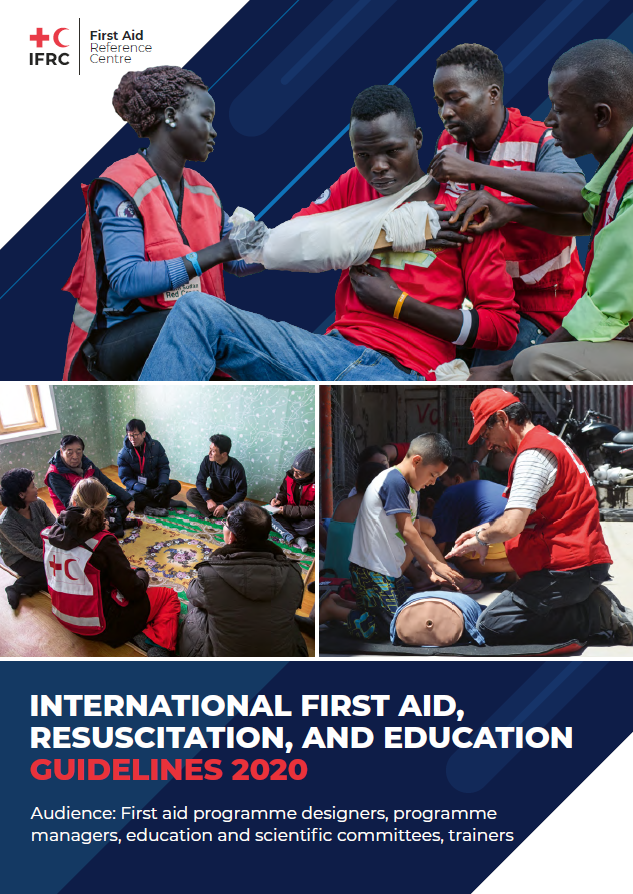Launch of the 2020 IFRC first aid, resuscitation and education guidelines
15/02/21

Today, the “2020 International first aid, resuscitation and education guidelines” of the International Federation of Red Cross and Red Crescent Societies (IFRC) are being launched. These guidelines are the result of an intensive collaboration between many Red Cross and Red Crescent (RCRC) Societies and first aid specialists, coordinated by the IFRC Global First Aid Reference Centre and a dedicated steering committee.
CEBaP not only took part in this steering committee, but was also responsible for the delivery of the majority of the evidence to support the first aid recommendations, and for methodological support throughout the guideline process. In addition, existing relevant evidence-based guidelines and recommendations from other organisations such as the International Liaison Committee on Resuscitation were integrated.
A clear distinction has been made between guidelines, which are based on evidence, and “Good Practice Points”, which are based on expert opinion and consensus when evidence was lacking or too limited (in quality or quantity). The evidence that was used to support the first aid guidelines is listed under the Scientific Foundation section for each topic, and the 104 up-to-date evidence summaries developed by CEBaP are freely accessible following registration via this link. The Scientific Foundation chapter again makes a distinction between evidence identified from systematic reviews and other sources of information (single studies, expert opinion).
In addition to the clinical part of the guidelines, an extensive Education chapter is also available, and for each topic “Education considerations” can be consulted, including context considerations, learner considerations and facilitation tips.
These guidelines will serve as a basis for the development of first aid training materials in RCRC Societies worldwide, and we are proud to have contributed to its evidence base, so that effective, up-to-date first aid advice can be implemented on a global scale.
